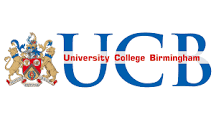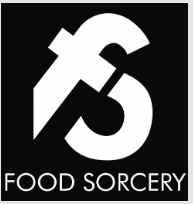Our Level 2 and Level 3 baking courses put the emphasis on hands-on training, providing you with essential practical skills in bread and confectionery. Working in our industry-standard kitchen facilities at University College Birmingham, you will gain a thorough background in working with a broad ra

Do you love baking? Ever dreamed of a professional career as a baker, cake decorator or working in confectionery? Our Bakery college course will provide you with the foundation of knowledge and skills to start pursuing your ambitions in the industry.
Our Level 2 and Level 3 baking courses put the emphasis on hands-on training, providing you with essential practical skills in bread and confectionery. Working in our industry-standard kitchen facilities at University College Birmingham, you will gain a thorough background in working with a broad range of bakery products, as well as learning about chocolate work and other special interest areas such as celebration cakes or artisan bread.
To further boost your practical experience, you will undertake a work placement within the industry, with opportunities available in a range of settings from bakeries to food manufacturers or the hospitality sector. There are also opportunities for research into further specialist production, as well as putting yourself to the test in baking industry competitions and events.
Course breakdown
Topics you will study
Confectionery
Chocolate tempering
Modelling
Celebration cakes
Piping
Flower making
Food safety
High volume manufacture of bread and yeast-based products
Sugar craft
Chocolate work
Designing and developing bakery products
Planning and evaluating specialist bakery products
Monitoring quality
Working with others
You will also have an individual study programme to help you build the skills and experience you need to progress onto higher education or gain employment.
We are also happy to accept students who require additional support on the Professional Bakery Level 1 Diploma.
Maths and English
To help you secure your dream career, you will also continue developing your maths and English skills alongside your full-time course. If you haven’t achieved GCSE grade 4/C in English and maths at age 16, you will continue to study these through resits or taking Functional Skills at an appropriate level.
How maths will support your career
Making measurements (including weighing) in baking and serving food properly
Making adjustments for time and temperature in food preparation
Using fractions for recipes and serving sizes
Using geometry to enhance the presentation of baked products
Handling nutritional data to inform choices about health and balanced diet
Effective stock management in bakeries
How English will support your career
Using accurate spelling and specialist vocabulary for presenting quality menus
Developing good speaking and listening skills for communicating with colleagues and customers
Improving your reading accuracy when following instructions and recipes
Enhancing your CV or advertising your business with the correct use of English
Entry requirements
Our bakery lecturers are looking for students who are enthusiastic and keen to gain practical skills in bread, cake production and decoration,
Bakery Level 1
Academic requirements
Entry Level 3 in English (Language or Literature) and maths are desirable for entrance. Admissions will be administered on an individual application basis.
This course level is available for students who require additional support.
Guaranteed progression option
Students who achieve Level 1 Bakery and receive approval from the University College Birmingham teaching team will be permitted to progress onto Level 2 Bakery.
Bakery Level 2
Academic requirements
4 GCSEs at grade 3/D or above, or equivalent.
Supporting documents required
School applicants will be required to provide a good school report, which must include attendance. This will be assessed in conjunction with your qualifications and application during the confirmation of your place at University College Birmingham.
If you are a school leaver (over 19), you will be required to provide a reference from a previous education provider or employer in support of your application.
Guaranteed progression option
Students who achieve Level 2 Bakery and receive approval from the University College Birmingham teaching team will be permitted to progress onto Level 3 Bakery.
Bakery Level 3
Academic requirements
A relevant Level 2 qualification in Bakery or Baking and Confectionery.
GCSE English (Language or Literature) and maths at grade 4/C are desirable for entrance but not essential.
Work experience admissions pathway
2 years’ relevant baking industry experience. Admissions will be based on your interview performance alongside a reference stating the roles and responsibilities held during your period of employment.
Supporting documents required
School applicants will be required to provide a good school report, which must include attendance. This will be assessed in conjunction with your qualifications and application during the confirmation of your place at University College Birmingham.
Guaranteed progression option
Students who achieve Level 3 Bakery will be automatically guaranteed an offer for Bakery and Patisserie Technology FdSc. Students who wish to study other degree courses at University College Birmingham will need to contact [email protected] for further advice and guidance on suitability.
English and maths
If you do not have a grade 4/C or above in English and maths and you are under 19, you will be required to study these subjects alongside your vocational subject. After enrolment you will complete an assessment with our teaching team so we can ensure you receive appropriate English and maths support.
Applicants over 19 are not required to complete maths and English.
Guaranteed progression
Students who achieve a pass for this qualification will automatically be guaranteed a place on a foundation degree course at University College Birmingham.
Key information
Teaching and assessment
On the Level 2 course, underpinning knowledge is continually assessed so you will complete practical assessments in the bakeries and a series of questions on the e-learning platform. A Level 2 Food Safety exam is also undertaken.
For Level 3, you will be required to complete both practical assessments within the bakery settings and written assignments on the e-learning platform. The course is continually assessed to ensure it provides more in-depth knowledge of the bakery industry, skills and ingredients.
Our teaching and assessment is underpinned by our Teaching, Learning and Assessment Strategy 2021-2024.
Uniform and kit costs
This course requires a uniform and kit costing approximately £300, depending on the items you purchase. (Prices are subject to change each year – exact costs and information on how to order required items will be provided to you prior to enrolment.)
You may be eligible for the Learner Support Fund, which assists college students with course-related costs such as essential uniform, equipment and travel.
History of University College Birmingham
With more than 7,500 students, University College Birmingham today is unrecognisable from the small Victorian classes where it all started.
Today, hospitality managers, aviation executives, dazzling hairdressers and makeup artists, educators, chefs, bakers, tourism industry experts, business leaders and creative entrepreneurs learn skills for life at a university hailed for its vocational training, academic achievements and cultural diversity.
We have invested £160 million in our campuses and facilities, including building McIntyre House and Moss House, since 2014. These ambitious projects represent a bold statement of intent beyond the dreams of Birmingham’s early educational pioneers.
here is, however, a common theme. Then, as now, cookery was of the moment; and students and employers in the 21st century owe a debt of gratitude to municipal reformers such as Joseph Chamberlain who backed the cause of cookery at UCB’s forebear, Birmingham Municipal Technical School, in the 19th century.
A report in the Birmingham Daily Post of November 7, 1874 recalls a meeting of the Birmingham School Board, presided over by the then chairman, one J Chamberlain.
The Board was told that the Education and School Management Committee had considered the “advisability of introducing instruction in practical cookery and household work as part of the ordinary school course.”
The committee suggested “experimental buildings” should be built at two schools to replicate the “ordinary size and ordinary character found in the cottages of working people.”
There should be “no special appliances for cooking” and the girls would be taught to cook with “ordinary utensils, at the ordinary fires, the ordinary food of the class to which they belonged.” It was a visionary, albeit no frills, educational development.
The fledgling culinary arts were sparking wider interest. By the 1880s, the Midland School of Cookery occupied a “large apartment” with a larder, scullery and a gas stove at the Midland Institute in Birmingham.
Up to 100 women and professional cooks attended lessons in “high-class” cookery five mornings a week. By 1891, cookery classes were delivered at the Birmingham and Midland School of Cookery at 117 Colmore Row, focusing on “high-class cookery, cottage cookery and vegetarian cookery.”
Archives suggest domestic cookery classes were taught throughout the First World War at the Municipal Technical School, which became the Central Technical College in 1927.
As the institution added new courses and changed its focus, there were numerous further name changes including, in the 1950s, the College of Food and Technology, featuring a department of bakery and domestic science. Just a year later, it was renamed again and became the Birmingham College of Food and Domestic Arts.
The College, which had operated from nine city and suburban schools, came under one roof in 1968 when the Duke of Edinburgh opened a new £1.5 million building on Summer Row.
The building was designed to house up to 1,000 students and included a hostel for 57 female students boarding on a dinner, bed and breakfast basis.
In 2002, the institution transferred to the higher education sector, providing both outstanding higher and further education courses with a strong vocational focus.
University College Birmingham was officially born in November 2007 when the Privy Council granted taught degree awarding powers.
Full university status followed in December 2012 as part of moves to diversify the university sector and improve student choice.
With many of its degrees accredited by the University of Birmingham, UCB has undergone a remarkable transformation and values it culturally diverse, outward facing global perspective.
It is a truly international university that delivers specialist courses to 900 overseas students from 65 countries as diverse as China, Pakistan and Saudi Arabia. UCB has amassed an impressive array of accolades and awards over the years.
The lion’s share of recruitment is now in higher education, comprising 70% of UCB’s intake compared with 30% on further education courses. Students can study everything from certificates and diplomas to degrees and postgraduate qualifications.
However, the defining ethos of the institution has remained a constant – to give students, regardless of their background, the opportunity to succeed and to offer, in the motto of the University’s coat of arms, “service before self.
Mission
University College Birmingham's mission is likely to focus on the following aspects:
Professional and Vocational Education UCB is committed to delivering practical and industry-relevant education that equips students with the skills and knowledge needed to excel in their careers.
Industry Engagement: The university aims to maintain strong partnerships with industries, businesses, and employers to ensure that its programs are aligned with current market needs and trends.
Student-Centered Approach: UCB strives to provide a supportive and student-centered learning environment that fosters personal and professional development.
Innovation and Excellence: The institution likely aspires to continually innovate its programs and teaching methods, while maintaining high standards of academic excellence.
Vision
University College Birmingham's vision might encompass the following goals:
Leading Applied Education: UCB likely envisions itself as a leading institution in providing applied education, producing graduates who are well-prepared for the challenges of the modern workforce.
Global Recognition: The university may aim to achieve recognition on a national and international level for its contributions to vocational education and its impact on various industries.
Graduate Success: UCB likely aims for its graduates to be highly sought-after professionals who make meaningful contributions to their fields and communities.
Innovative Learning Environment: The institution might envision fostering a dynamic and innovative learning environment that utilizes the latest teaching methods and technologies.
Community Engagement: UCB may seek to actively engage with the local community, businesses, and organizations to create mutually beneficial partnerships and initiatives.

French Patisserie – Sweet Lovers (Hands on) Course is Offered by Jean-Christophe Novelli Academy.

By popular demand we have a seasonal baking class, you will learn to make wonderful baked goods inspired by traditions. Wow your friends and family with a German stollen, Lebkuchen and British classic – mince pies.

Come along and learn how to make two fantastic handmade ‘Penistone Pork Pies’ using hot water pastry and a traditional savoury pasty with a melt in the mouth short crust pastry to take away and enjoy with the family.

Sourdough bread has been around for hundreds of years. Widely favoured amongst many due to its ability to digest easier within the body and for its tangy flavour and wholesome appearance. Whilst the supermarkets have brought sourdough to our shelves, the amount of care and attention needed is some...

One to One class is an exclusive class which you can tailor make to your needs.
© 2025 coursetakers.com All Rights Reserved. Terms and Conditions of use | Privacy Policy